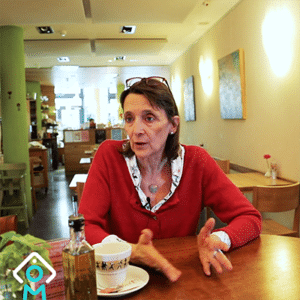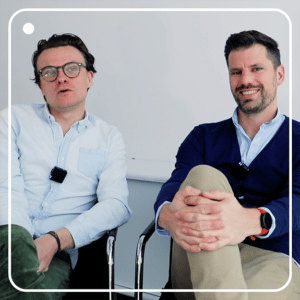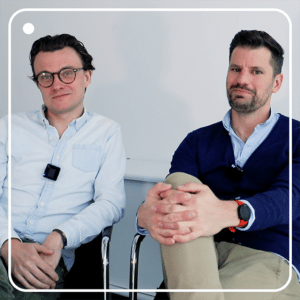Navigating the real estate market
In this Meet an entrepreneur video, Aurélien Dobbels and Nicolas Legay,
co-founders of Cocoonut since 2020, share their experience to stand out in the co-living sector in Luxembourg.
- Getting connected/networking well
- Stand out from the crowd
- Reaching out to expats
Find out all the information about Cocoonut on the website: livecocoonut.com.
Discover all our entrepreneur videos and our expert articles on meetanentrepreneur.lu.
You liked this content?Share it now!
Bookworm? Read the transcript!
Transcription de l'intervention de Aurélien Dobbels & Nicolas Legay
We really put ourselves in the shoes of our tenants and we want them to feel good and we try to be very responsive.
Navigating the real estate market
Aurélien Dobbels and Nicolas Legay, co-founders of Cocoonut since 2020
Getting connected/networking well
There is also what is called the FOMO effect, Fear Of Missing Out. As a result, having one, the person who hasn’t tried it yet is going to think, “Oh yeah, maybe they’re not that dumb and maybe I should go, maybe it might be a good investment”, so I think it brings credibility.
It’s true that at the beginning, we also benefited from quite a bit of visibility by being startup of the year and that also allowed us to generate curiosity. So, we don’t hesitate to pitch when we’re asked to do so
on a specific topic because it’s related to real estate. It also allows us to bring our vision, which is always rewarding for us, and to make contacts in the audience. We’re also trying to implement a strategy that’s a bit shy for now, but to be active on social networks, on LinkedIn as well, to always be on the lookout, to always post something, to keep our followers informed of our news. And that also helps to maintain the link.
Stand out from the crowd
We are trying to professionalise this shared accommodation, to build the accommodation so that it is legally compliant, which is not necessarily the case with classic shared accommodation. So, this is a first axis of differentiation compared to what is done in the country. And right now, we are trying to create spaces in which we would like to live, in which we would like to work, in which we would like to have fun ourselves. So, we really put ourselves in the shoes of our tenants and we want them to feel good and we try to be very responsive if there is ever a problem, we try to sort it quickly. We centralise all the information within a single app. So, for us, it’s a time saver. All the documents are stored there, all the possible problems are stored there, all the events are communicated there and therefore there’s only a single means of communication with both the tenants and the landlords.
Reaching out to expats
Originally, we thought that our users would be people between 25 and 45 years old, with 5 years of higher education or more, who came here to work for a Big Four, a bank or a law firm that came from relatively far away. In the end, we were not wrong.
Most of the people, so half of them, come from Europe, the other half outside Europe. So, they really come from very far away. We have applicants from Japan, South America, from all over the world. It’s pretty amazing. Their first point of contact with the country is their future employer. So, we have to be the second one. And to be the second, the first point of contact must refer us or that we ensure our visibility on the flat search sites. In the end, it’s a clever mix of the two that has to be well balanced. And even with the main employers, we are trying more and more to create links with human resources departments or relocation agencies as well.





